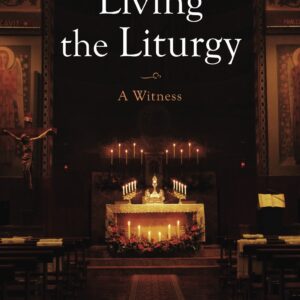For the past few months, I have made a practice of reading a portion of the Psalms daily. My goal has been to read—out loud if I can—one of the twenty kathisma, or traditional divisions of the Psalter that are observed in Eastern Orthodox monasticism.
The idea that one would—indeed, ought—to commit time each day to reading a portion of the Scriptures was not a novel one for me. I had converted to evangelical Christianity as an adolescent, and early on, the importance of Bible study was impressed upon me. In a conservative Presbyterian church where the utter incapacity of man before God was stark and non-negotiable, the emphasis on Bible reading seems to reveal an unwittingly works-based theology: The practice of close, daily reading of the Scriptures turned out to be one of the marks by which you could distinguish a “real” Christian from a merely “cultural” one.
I never did master the daily “Quiet Time,” as we called it, though the Bible reading I did do, and the verses I underscored in blue Bic pen, along with the hour-long expository sermons in church, did set me up well to understand the Biblical references in, among other texts, Paradise Lost. And that’s not nothing—the line of the Bible became for me a living thread, twining through the generations of texts I encountered.
Of course, I realize now, that Biblical seed fell on fertile ground for me because even though I’d come from a family that may-or-may-not have been “real” Christians, I’d grown up as a Southerner—a Mississippian—in a culture already suffused with the language of Christianity, where even the most casual terms in conversation could be bound up with tenets of faith. In fact, I was just thinking about one today: In winter, my mother had a way of saying that it was, “cold as flugens”—quite the irony, being that “flugens” was a colloquial term for hell. And it was a phrase she regularly invoked as she crossed her arms and shivered.
That old Southern world is gone now, of course—my eyes even water if I pronounce the phrase “cold as flugens” to myself, remembering my mother. But even more than that—what also seems to be gone is a place where a casual phrase could point toward a rather complicated metaphysical reality and yet could also retain the flavor of the everyday. It is a phrase—or was, rather—not washed into being by media and entertainment.
I miss the logocentrism of reading the Bible as a Southern Presbyterian—and all the texts that it opened to me—from the Faerie Queene and John Donne on down to William Faulkner. My sense of things these days, though, is that—in both its “liberal” and “conservative” variants, the public demonstration of Christian faith has instead largely devolved to the endless trading-back-and-forth of stock phrases and careworn language, from both the erstwhile conservative movement and the Social Justice movement—ripped from their referents, shouted out and rearranged, and broadcast: Comfort the afflicted and afflict the comfortable. Standing athwart history yelling Stop. Do justice; Love mercy. Totus Tuus. A thousand little platoons. It ends up being less a demonstration of faith, really, than a recitation, a shuttling around of pieces on the surface.
The trend is hardly restricted to Christianity or even religious faith in general—it’s as though everything had fallen prey to the “a noun, a verb, and 9/11” tendency, as Joe Biden memorably termed Rudy Giuliani’s go-to argument during the 2008 presidential campaign. Nothing more than telegraphed clutter.
The old Marshall McLuhan observation that “the medium is the message” gets quoted far too often, but how much has discourse been shaped by the very form of digital media? And not even the old worries about our collective attention spans—it seems to me that the concern should be the very paucity of what we’re asked to pay attention to.
All these phrases, like plants that have been cut from their roots. So how do we find a way back to the Source?
—Just as I framed that sentence in my mind, a line rang in my ear: There lives the dearest freshness deep down things. Hopkins I thought, and Hopkins it turned out to be, but what was really going on was that my chest resonated with the remembered hum of Dr. Tom Assad reading that very poem in my Freshman literature class at Tulane.
The way back to the Source is, I think, is through embodiment, words drawn back to their referents, metaphors pulled down to the realities they illuminate. I am the branch from Tom Assad’s tree, but what it means is that it is my voice that must pronounce the poem.
And because my Source is Christian, the way for me to return to it is by this daily, bodily observance. I descend myself into the text with my body and my voice, down to the Psalmist and the faith for which he spoke, the centuries of saints that followed, and the breadth of minyan and monastics pronouncing them.
Even right at this moment: the branches of the tree vivid and enfleshed.
Caroline Langston was a regular contributor to Image’s Good Letters blog, and is writing a memoir about the U.S. cultural divide. She has contributed to Sojourners’ God’s Politics blog, and aired several commentaries on NPR’s All Things Considered, in addition to writing book reviews for Image, Books and Culture, and other outlets. She is a native of Yazoo City, Mississippi, and a convert to the Eastern Orthodox Church. She lives outside Washington, D.C., with her husband and two children.





